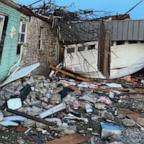New HPV Vaccine Might Stop Vulvar Cancer in its Tracks
Nov. 5 -- WEDNESDAY, Nov. 4 (HealthDay News) -- A vaccine that targets human papillomavirus (HPV) is able to stop precancerous lesions in the vulva from progressing into full-blown malignancies, Dutch researchers report.
Two other vaccines -- Gardasil and Cervarix -- have been approved for young women to prevent infection with HPV, which is also thought to spur precancerous lesions in the cervix and cause 70 percent of cervical cancers.
But the vaccine used in this study, published in the Nov. 5 issue of the New England Journal of Medicine, is not the same as the two existing vaccines.
"This provides a therapeutic effect to a lesion that's already there," explained Dr. Eugene P. Toy, an associate professor of obstetrics and gynecology in the division of gynecologic oncology at the University of Rochester Medical Center.
"This shows that it is possible to vaccinate against chronic disease, as well as treat HPV-induced premalignance," added study co-author Sjoerd H. van der Burg, of the experimental cancer immunology and therapy section at the Leiden University Medical Center in the Netherlands and ISA Pharmaceuticals, which helped fund the study and has licensed the patent for the vaccine from Leiden University Medical Center.
Eventually, clinicians hope the two HPV vaccines on the market will reduce the incidence of vulvar precancerous lesions.
Right now, though, said Dr. Kristine Zanotti, a gynecologic oncologist with University Hospitals Case Medical Center in Cleveland, "there are a lot of potential therapeutic challenges with HPV-related problems, especially vulvar dysplasia, which are multi-focal [they crop up in different places] and recurrent. [This vaccine] is a very exciting tool."
The HPV-16 virus is implicated in 75 percent of cases of these vulvar lesions. A sexually transmitted pathogen, HPV has also been linked to rare cancers of the throat, genitals and anus, as well as genital warts.
For vulvar lesions, the existing treatments are unpleasant and not altogether effective.




